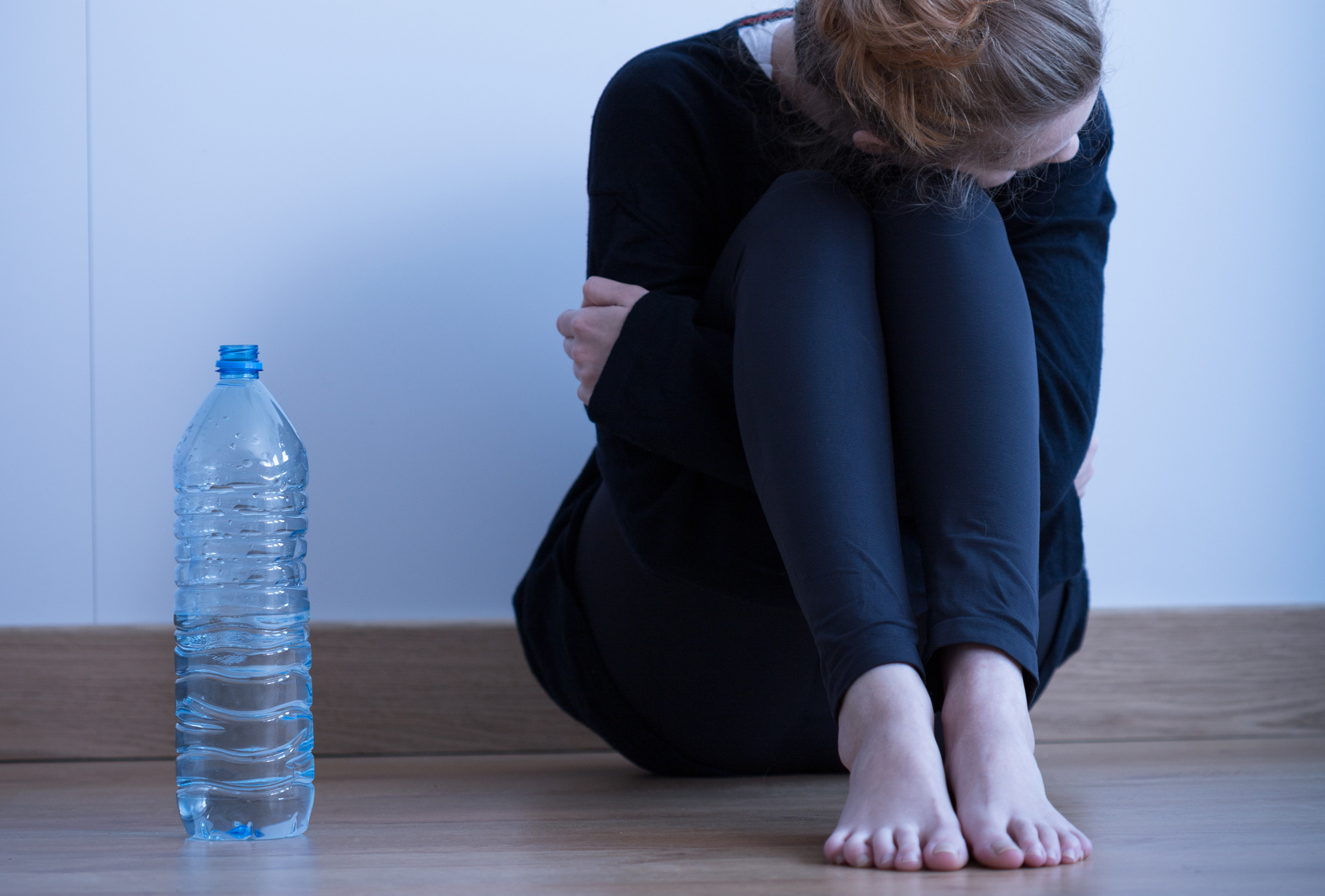Six Signs and Symptoms to Observe in Eating Disorders

(This content is being used for illustrative purposes only; any person depicted in the content is a model)
How to know if someone is anorexic or bulimic and how you can help.
Eating disorders affect millions of people year round. The psychological, emotional and physical effects of eating disorders like anorexia, bingeing, bulimia and exercise bulimia are incredibly taxing on a person’s health. It is important to acknowledge the signs and behaviors of eating disorders. Often, people with eating disorders rationalize and minimize their behaviors. The good news is there are signs that can raise a red flag that you or someone you know is struggling with an eating disorder.
-
Secrecy and isolation
The guilt and shame attached to eating disorders result in many hiding their behaviors in private. Someone with an eating disorder may eat “normally” in front of family and peers. However, they look for opportunities to binge or purge in private. The behaviors can take up hours or time, and these people tend to crave isolation, making excuses and turning down opportunities with family and friends. They wind up spending more time alone to engage in their destructive eating disorder patterns.
-
Anger and Defensiveness
Anger is a common response from those with eating disorders. They are defensive about their behaviors, so when a loved one expresses concern, they may snap back out of defensiveness. This behavior is an attempt to downplay or deny the eating disorder altogether instead of admitting to a problem.
-
Skewed Perception of Reality
A person with an eating disorder may have a skewed perception about their eating, weight and exercise habits. They may feel their behavior is normal and not alarming. This can be a significant red flag because it means they are unaware of how harmful their behavior is.
-
Anxiety and irritability or depression.
The person with an eating disorder may become anxious about getting caught or annoyed when loved ones around them become suspicious or “controlling.” Furthermore, eating disorders and depression is common among each other. It is easy for someone to become irritable, depressed or anxious due to not eating enough calories. Depression symptoms include sleep disturbance, excessive guilt, feelings of hopelessness and loss of interest in activities that used to be pleasurable. If you notice these symptoms in yourself or others, it can be a sign of harm.
-
Hiding Weight Loss and Heavy Restriction
When we look at eating disorders like anorexia, those who restrict will do things to hide their appearance. After losing weight, a person with anorexia may wear baggier clothes to hide it. They may move their food around on the plate but not eat it or chew food and spit it out. Girls and women are likely to lose their period, a condition known as amenorrhea. The loss of period is due to excessive weight loss because the hormone needed to menstruate is located in fat cells, and weight loss results in a major fat deduction.
-
Overspending and Hiding Food
In the case of eating disorders like binge eating disorders, food is often hidden. Food keeps disappearing from the pantry yet you rarely see anyone eating it. People who are purging usually go to the bathroom immediate after eating and use breath mints and bathroom spray to cover the vomit. Repetitive purging may result in dental problems as well. Keep an eye out for any of these signs that are linked to binging and purging
In all of these scenarios, the body is being harmed and the serious mental issues can develop. While it is clear those with eating disorders need medical attention, it is up to loved ones to notice and intervene. If you notice someone struggling with an eating disorder, confront them with love, not anger. Get them the help they desperately need. If you need help, please call now. If you or someone you love is struggling with substance abuse or addiction, please call toll-free 1-800-777-9588.
